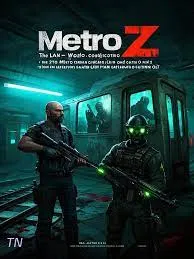The Expanse is not just another science fiction series — it’s a bold, ambitious, and politically-charged space opera that has redefined modern sci-fi television. Based on the novels by James S.A. Corey, the series originally aired on Syfy in 2015 before being saved and continued by Amazon Prime Video, where it concluded with its sixth season in 2022. Widely acclaimed for its complex storytelling, hard science, and deeply human characters, The Expanse stands as one of the finest sci-fi epics of the 21st century.
Set 200 years in the future, The Expanse imagines a colonized solar system where Earth, Mars, and the Outer Planets Alliance (OPA) — representing the asteroid belt and its exploited inhabitants — exist in a fragile state of political tension. The story begins with a mysterious disappearance and a sabotaged ice hauler, the Canterbury, but quickly spirals into an interplanetary conspiracy involving a deadly alien substance known as the protomolecule.
At the center of the series is a diverse ensemble: James Holden (Steven Strait), an idealistic ship captain; Naomi Nagata (Dominique Tipper), a brilliant engineer with OPA roots; Amos Burton (Wes Chatham), a morally ambiguous mechanic; and Alex Kamal (Cas Anvar), a Martian pilot. Together aboard the Rocinante, they navigate war, survival, diplomacy, and the terrifying implications of alien contact.
One of The Expanse's greatest strengths lies in its well-drawn characters and powerful performances. Steven Strait grows into the role of Holden with quiet conviction, but it's Dominique Tipper and Wes Chatham who truly shine. Tipper brings raw emotion and complexity to Naomi, while Chatham’s portrayal of Amos — a violent man with a strict personal code — becomes one of the most compelling arcs in the series.
Shohreh Aghdashloo deserves special recognition for her role as UN politician Chrisjen Avasarala. With her sharp tongue, regal presence, and gravelly voice, she commands every scene she’s in, adding political depth and urgency to the show’s broader themes.
The world-building in The Expanse is second to none. The show pays attention to the physics of space travel (no artificial gravity, realistic acceleration), linguistic evolution (the Belter creole), and socio-political structures. This commitment to realism gives the series a gritty, grounded tone rarely seen in space-set dramas.
Visually, the series only improves over time. The zero-gravity sequences are inventive, and the depiction of massive space battles, asteroid stations, and alien technology is stunning, especially in later seasons under Amazon’s bigger budget.
Beyond the ships and shootouts, The Expanse is rich with political and philosophical commentary. It explores inequality, colonialism, climate change, loyalty, and the cost of power. Each faction — Earth, Mars, and the Belt — has its own cultural identity and perspective, and the show often asks: who really has the moral high ground?
The introduction of the protomolecule and alien civilizations adds another layer, shifting the narrative from politics to existential questions about humanity’s place in the universe.
The Expanse is a rare gem: smart, suspenseful, deeply human, and scientifically literate. It treats its audience with respect, trusting viewers to keep up with complex plots and moral ambiguity. While its pacing may be slow for some, those who invest in the journey are rewarded with one of the most satisfying and thought-provoking sci-fi sagas in television history.

